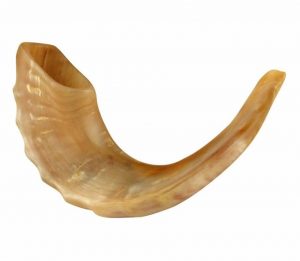 During the Yom Kippur prayers, we read the Book of Prophet Jonah, which is part of the Tanach.
During the Yom Kippur prayers, we read the Book of Prophet Jonah, which is part of the Tanach.
In this Book we learn the story of Jonah (Yonah in heb.), Now famous, the prophetic messenger who was chosen to call the inhabitants of the Empire of Nineveh to repent. Fleeing his prophetic mission, because he said to himself that at the end HaShem will forgive them, Jonah boarded a ship. A big storm arose and Jonas realizing that this was his fault because he was fleeing from his mission, threw himself into the sea to spare the lives of his traveling companions. A whale then swallows Jonah and he prays for three days from the bowels of the whale. After 3 days the whale then spat Jonah out on the beach, and he left for Nineveh, and delivered his prophecy on the city.
It was a terrible prophecy, which would announce the destruction of Nineveh.
But she left a door open if the people fasted and repented.
Hearing the words of the prophet, all the people of Nineveh, from the King to the simplest of citizens and to the animals fasted for 3 days.
After this Young Jonah announced to the city that HaShem forgave them. At the end of the story there is a small private episode between HaShem and Jonas.
While the city repented and prayed, Jonah stood in the hills outside the city, to see what was to happen.
God made a whole shrub grow overnight, the leaves of which gave Jonah shade.
He was happy with this shadow because it protected him from the scorching sun during the day.
Then suddenly, HaShem made the shrub disappear by suddenly drying it up.
The heat became so intense that the Prophet believed that his soul was leaving him and he started to complain. So HaShem said to him: “… Jonas, you are complaining to Me about this shrub, which only comes from one night. But for this people, this multitude which does not know its right from its left?”. .. We read this Yom Kippur story, at the height of prayer. It is one of the most informative stories in the whole Bible.
This story speaks to us:
⁃ Free will: Does the Prophet have a choice when he flees?
⁃ From the definition of prophecy and its function: In Jonah we clearly see that the Prophets of the people of Israel were spiritually concerned with the moral state of humanity around them.
⁃ Knowledge of the future cannot deny the urgency of the present, even if we see that the future is good. The lesson at the end, with the shrub, is that the essential is in the present, that this is what is moral light. Because the Prophet himself lived the experience of the shrub as a suffering. So prophecy does not mean knowing the future. Neither on the side of evil, because this can be changed for good by the teshuva as demonstrated by the example of Nineveh; but we cannot even say that on the side of the good too if in any case everything will be fine at the end so there is nothing to be done. No, even then it is a spiritual mistake not to address the problems of the present. Prophecy in this sense means increased awareness of the problems of the present, according to their real and subjective proportions, in order to be able to bring an adequate response to each and everyone.
And by reading the Book of Jonah on the greatest day of the Jewish year, we give the recipe for the peoples of the world to resolve their own crises and problems wherever they may be, through repentance: by returning to charity and to respect for the dignity of life.
So we are all Jonahs.
He himself had to repent and fast for 3 days with the whale, before telling a whole town to do the same. The messenger must feel what the people feel.
Likewise, the people of Israel have had to live through and go through many trials since antiquity before setting an example through their Torah and their Sages.
Those who received the Torah are called Or Lagoyim, because their example is supposed to guide humanity, towards more justice and respect for the dignity of every human being, as a living representation of the Image of God.
When the sacred status of man is violated by acts that reduce his moral height, those who are blessed with the gift of the word of Wisdom are called upon to intervene and, like Jonah, cannot shirk it.
There are 3 things that HaShem gives to the person, which are only made to give to others.
0. Strength: to protect others.
0. Wealth, to help the poor.
0. Wisdom, to open hearts and inspire minds to good.
These three things must be part of the Navi’s profile, according to the Torah. They all have to do with awareness of the present.
Yom Kippur begins with the inclusion of the whole community by Kol Nidrey, and ends with the Book of Jonah, which includes all of humanity.
GMAR HATIMA TOVA!
